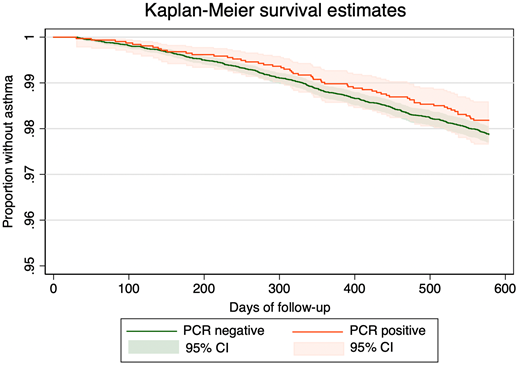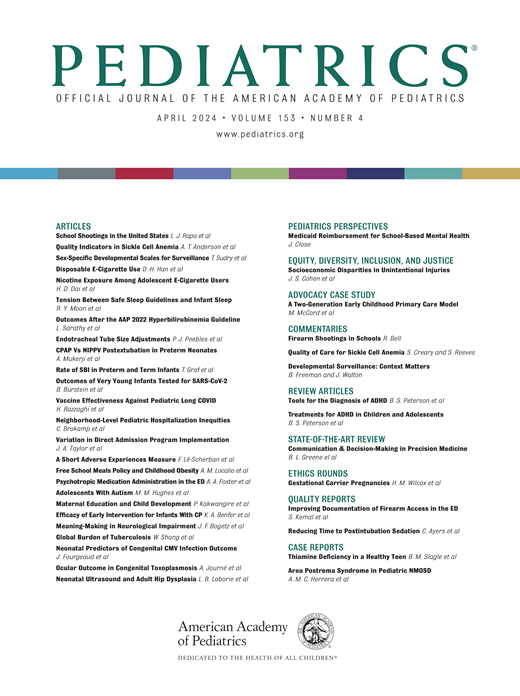ABSTRACT
BACKGROUND AND OBJECTIVES:
Respiratory viral infections increase risk of asthma in infants and children. Infection with the severe acute respiratory syndrome coronavirus 2 (SARS-CoV-2) virus can cause severe lung inflammation and prolonged respiratory symptoms. We sought to determine whether SARS-CoV-2 infection modified pediatric incident asthma risk.
METHODS:
This retrospective cohort study examined children ages 1 to 16 within the Children’s Hospital of Philadelphia Care Network who received polymerase chain reaction (PCR) testing for SARS-CoV-2 between March 1, 2020 and February 28, 2021. Multivariable Cox regression models assessed the hazard ratio of new asthma diagnosis between SARS-CoV-2 PCR positive and SARS-CoV-2 PCR negative groups within an 18-month observation window. Models were adjusted for demographic characteristics, socioeconomic variables, and atopic comorbidities.
RESULTS:
 |
| Kaplan-Meier survival curves comparing adjusted asthma-free survival between SARS-CoV-2 positive and SARS-CoV-2 negative groups. |
CONCLUSIONS:
SARS-CoV-2 PCR positivity was not associated with new asthma diagnosis in children within the observation period, although known risk factors for pediatric asthma were confirmed. This study informs the prognosis and care of children with a history of SARS-CoV-2 infection.
Respiratory viral infections, particularly rhinovirus and respiratory syncytial virus, are risk factors for the onset of pediatric asthma. Severe acute respiratory syndrome coronavirus 2 (SARS-CoV-2) infection can cause severe lower respiratory tract inflammation, but little is known about if SARS-CoV-2 infection influences development of asthma.
By establishing that a history of SARS-CoV-2 polymerase chain reaction positivity is not associated with new asthma diagnosis, this study broadens our understanding of the long-term respiratory consequences of SARS-CoV-2 infection and informs the prognosis and care of millions of US children.

No comments:
Post a Comment